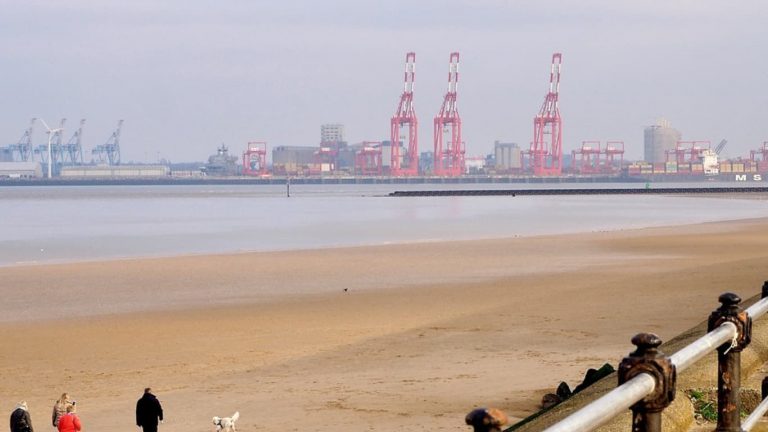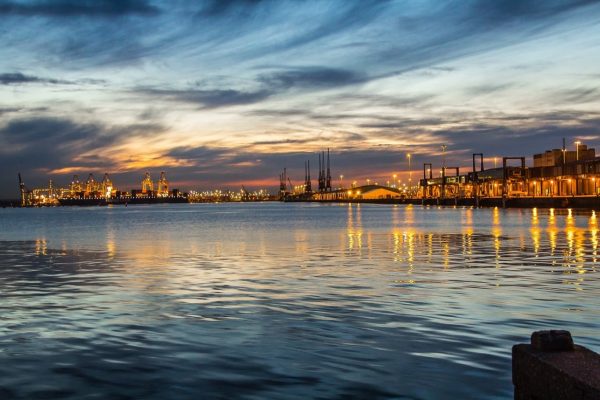The Port of Liverpool is a historic hub of maritime activity and commerce, located on the Mersey estuary in northwest England. Established in the late 18th century, the port has played a significant role in the growth and development of Liverpool and remains one of the largest and busiest ports in the UK today.
From its humble beginnings as a small dock on the River Mersey, the Port of Liverpool has grown into a thriving hub of global trade, connecting the UK with destinations around the world.
Today, the port is a vital part of Liverpool’s economy, supporting a wide range of businesses and industries and providing employment for thousands of people. The Port of Liverpool is one of the largest ports in the UK in the volume of freight handled.
Whether you’re a history buff, a maritime enthusiast, or simply interested in learning more about this iconic port city, this blog provides an in-depth look at the Port of Liverpool and its rich heritage.
History of The Port of Liverpool
The Port of Liverpool has a rich and varied history that spans over two centuries. It was established in 1715 as a small dock on the River Mersey, and since then, it has played a major role in the growth and development of Liverpool, the UK, and beyond. Here is a chronological summary of some of the most significant events in the history of the Port of Liverpool:
1715: The First Dock is Built
The Port of Liverpool was founded in 1715 with the construction of the Old Dock, which was the first commercial wet dock in the world. This small dock set the stage for Liverpool’s growth as a major port city, connecting the UK with destinations worldwide.
19th Century: Expansion and Growth
The 19th century saw a period of rapid expansion and growth for the Port of Liverpool. The construction of the Albert Dock in 1846 was a major milestone, providing much-needed storage space for the city’s rapidly growing trade. This was followed by the construction of the Stanley Dock in 1848, which further expanded the port’s capacity.
20th Century: World War and Decline
The early 20th century was a time of great change for the Port of Liverpool, with the outbreak of World War I and the subsequent decline in trade causing major disruptions. Despite these challenges, the port played a vital role in the UK’s war effort and post-war recovery.
1960s to 1980s: Decline and Renewal
The late 20th century saw a period of decline for the Port of Liverpool as trade shifted away from the UK to other countries. However, this period also saw the beginning of renewal for the port, as efforts were made to modernise facilities and attract new business.
Modern Day: Revival and Growth
Today, the Port of Liverpool is a thriving hub of global trade, connecting the UK with destinations worldwide. With modern facilities, a skilled workforce, and a commitment to sustainability and innovation, the Port of Liverpool is well-positioned to continue its legacy of growth and success for years to come.
Despite the challenges and changes it has faced, the Port of Liverpool remains a vital part of Liverpool’s economy and a symbol of the city’s rich maritime heritage.
10 Facts About Port of Liverpool
- First Commercial Wet Dock in the World: The Port of Liverpool was established in 1715 with the construction of the Old Dock, which was the first commercial wet dock in the world.
- Busiest Port in Britain: At its peak, the Port of Liverpool was the busiest port in Britain, handling over half of the country’s imports and exports.
- Iconic Landmarks: The port is home to several iconic landmarks, including the Albert Dock, the Stanley Dock, and the Royal Albert Dock.
- Role in the Transatlantic Slave Trade: The Port of Liverpool played a significant role in the transatlantic slave trade, with many slave ships departing from the port for destinations in the Americas.
- Connection to the Beatles: The port has a strong connection to the Beatles, with the famous band forming in Liverpool and many of their songs referencing the city and its history.
- Home to the Mersey Ferry: The Port of Liverpool is home to the Mersey Ferry, a popular tourist attraction that offers scenic boat rides along the River Mersey.
- Major Cargo Hub: Today, the Port of Liverpool is a major cargo hub, handling a wide range of goods, including containers, cars, and bulk commodities.
- Busiest Cruise Terminal in the UK: The Port of Liverpool is the busiest cruise terminal in the UK, hosting hundreds of thousands of cruise passengers each year.
- Strategic Location: The port’s strategic location at the mouth of the River Mersey has made it an important gateway for trade between the UK and other countries
- Significant Economic Impact: The Port of Liverpool has a significant economic impact on the city, supporting thousands of jobs and contributing to the local economy through trade and tourism.
Future of Port of Liverpool
The future of the Port of Liverpool is poised for growth and success, building upon its rich history and legacy as one of the largest and busiest ports in the UK. With modern facilities, a skilled workforce, and a commitment to sustainability and innovation, the Port of Liverpool is well-positioned to continue its role as a vital gateway for trade and commerce.
The port is investing in new technology and infrastructure to improve efficiency and competitiveness and is working to attract new business to the region. Additionally, the Port of Liverpool is poised to play an important role in the UK’s post-Brexit trade strategy as it seeks to increase its presence in international markets and solidify its position as a major player in the global economy.
The Port of Liverpool is also committed to sustainability and is taking steps to reduce its environmental footprint and promote sustainable practices throughout the supply chain. This commitment to the environment and the local community will help ensure the long-term success and viability of the port and position it as a leader in the maritime industry.
In conclusion, the future of the Port of Liverpool is bright and full of potential. With a rich history, modern facilities, and a commitment to innovation and sustainability, the port is poised to continue its growth and success legacy for many years.




